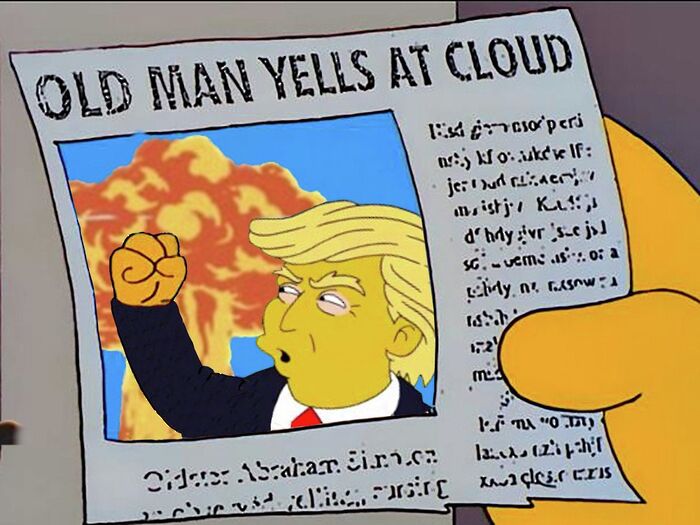Brave new world? His Dark Materials makes me want to nod off
£40 million can’t buy you a fully-built CGI world – or, apparently, decent writing
The BBC’s brand-new, highly-anticipated, most-expensive-drama-series-ever-made adaptation of His Dark Materials is – in a word – boring.
I was sceptical as soon as the first episode began. Immediate expositional text is never a good sign of subtle storytelling, and in this case, the entire concept of Pullman’s alternative universe was summed up in the first minute of non-diegetic intertitles. Every person has an animal manifestation of their soul called a daemon, and – as the text crawl so bluntly puts it – “the relationship between humans and daemons is sacred”. The rest of the episode sadly follows this ‘show, don’t tell’ violation, as almost every line of dialogue serves to info-dump rather than to characterise.
“I find myself caring more about the evil mother than our young protagonist”
One incredibly contrived moment from the first episode – that forced me to pause because I was laughing so hard – was the protagonist Lyra asking her uncle (later revealed to be her father): “Did it look like this? The airship that my parents died in?” He replies: “No…no, it was smaller.”
The writing doesn’t get much better. The characters feel like hollow vehicles for the plot, being slowly moved around a vaguely steampunk-themed chessboard. As a result, the dialogue largely feels perfunctory and few characters are given much depth. The Magisterium, an obvious analogue of the Christian Church, are inexplicably evil; what could have been a complex dissection of religion is reduced to a stereotype of dystopian dogma and censorship.
The exception to this one-dimensionality is Ruth Wilson, who pulls off quite a few interesting moments as the intensely evil (yet stylish) Mrs Coulter. One of the more redeeming scenes features a nice bit of characterisation after Lyra, her daughter, runs away: she staggers, whisky glass in hand, along the edge of her balcony and chuckles when she almost falls – an interesting convergence of motherly grief and insanity.
Ruth Wilson does such a good job that I’ve found myself caring more about Mrs Coulter than Lyra, whose performance by Dafne Keen is quite inconsistent. It pales in comparison to the one she gave in Logan back in 2017. The supposed comic relief added by the introduction of Lee Scoresby (played by Lin-Manuel Miranda) didn’t land for me, despite the show’s clear attempts to make me like him. I found his daemon’s narration throughout the fight scene in Episode 4 cringe-worthy rather than funny. The only obviously impressive aspect of that episode was the introduction of Iorek Byrnison, the armoured bear (whose armour doesn’t cover any of his limbs for some reason) who is almost certainly the major CGI budget-drain.
“Pullman’s world is ultimately unconvincing”
In fact, it looks like so much effort went into Iorek that not very much was left over to flesh out the rest of the hugely ambitious world. The distinction between fantasy-steampunk Oxford and London from their real-life counterparts seems to have mostly been made by the addition of a few CGI airships.
We also only get to see the daemons of the main characters, when canonically, all the extras in any given scene should have one too. Like the Pokémon in Detective Pikachu, daemons should be everywhere, yet without a Hollywood-scale CGI budget to match, Pullman’s world – although it may at times look beautiful – is ultimately unconvincing.
You might’ve noticed that I’ve steered clear of how well the show represents the source material. My reasoning is, firstly, I haven’t read the books, but more importantly, Pullman has an executive producer credit, so I’m assuming he’s happy with the show.
My issue lies with how well it functions as a piece of drama – which, given its heavy-handed exposition, prioritisation of plot over characters, and inconsistent world-building, is not very well. Ultimately, even the exceptional £40 million budget couldn’t pull off an equally ambitious TV show
 News / Clare Hall spent over £500k opposing busway 24 December 2025
News / Clare Hall spent over £500k opposing busway 24 December 2025 Comment / The ‘class’ of Cambridge24 December 2025
Comment / The ‘class’ of Cambridge24 December 2025 News / Caius mourns its tree-mendous loss23 December 2025
News / Caius mourns its tree-mendous loss23 December 2025 Comment / Yes, I’m brown – but I have more important things to say22 December 2025
Comment / Yes, I’m brown – but I have more important things to say22 December 2025 News / Girton JCR publishes open letter expressing solidarity with Palestine25 December 2025
News / Girton JCR publishes open letter expressing solidarity with Palestine25 December 2025










